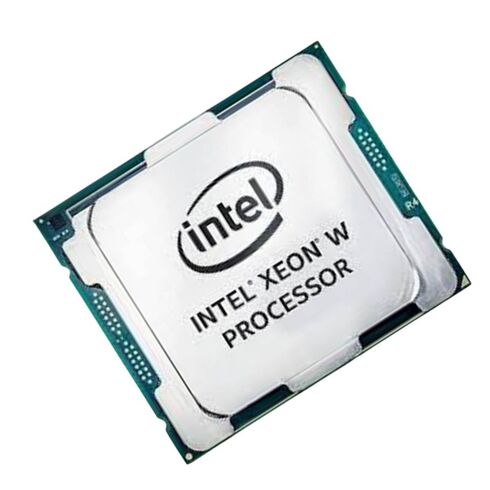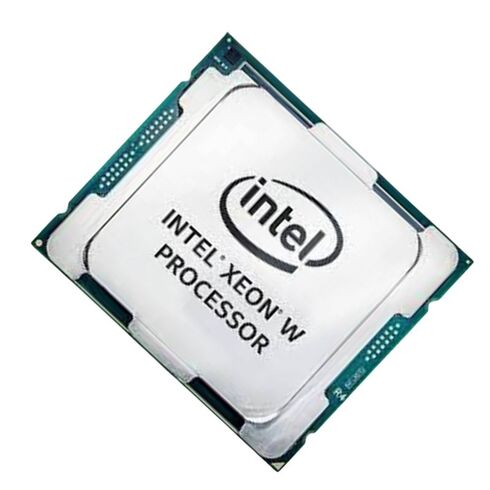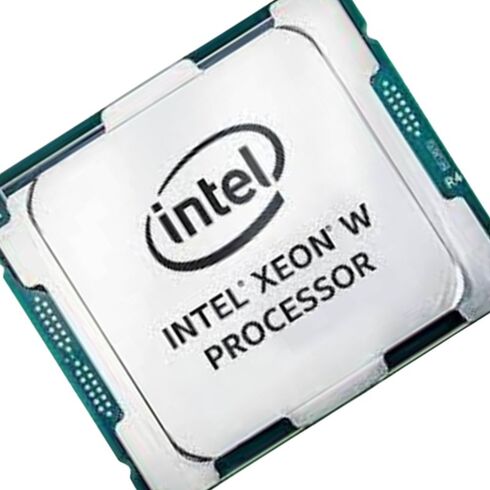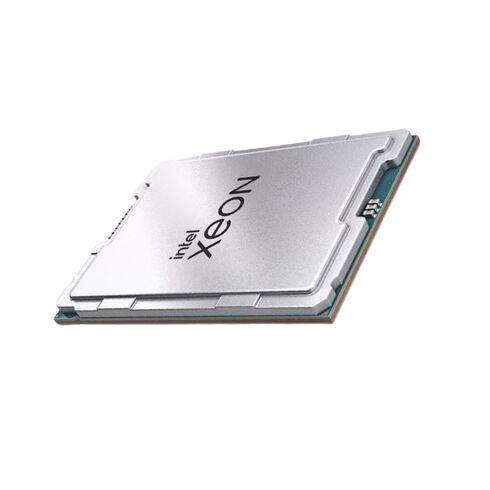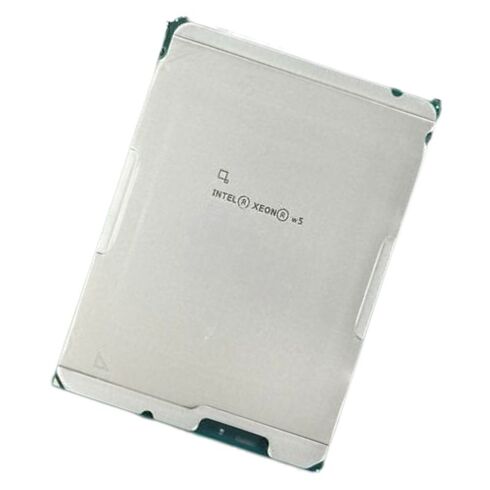PK8071305126800 Intel Xeon 20-core 2.60GHz 64-bit 37.5MB L3 Cache Server CPU & Processors
- — Free Ground Shipping
- — Min. 6-month Replacement Warranty
- — Genuine/Authentic Products
- — Easy Return and Exchange
- — Different Payment Methods
- — Best Price
- — We Guarantee Price Matching
- — Tax-Exempt Facilities
- — 24/7 Live Chat, Phone Support
- — Visa, MasterCard, Discover, and Amex
- — JCB, Diners Club, UnionPay
- — PayPal, ACH/Bank Transfer (11% Off)
- — Apple Pay, Amazon Pay, Google Pay
- — Buy Now, Pay Later - Affirm, Afterpay
- — GOV/EDU/Institutions PO's Accepted
- — Invoices
- — Deliver Anywhere
- — Express Delivery in the USA and Worldwide
- — Ship to -APO -FPO
- — For USA - Free Ground Shipping
- — Worldwide - from $30
Cache
The Intel Xeon 20-core 2.60GHz Server CPU & Processors boasts an impressive 37.5MB L3 Cache, making it a powerhouse for data-intensive tasks and resource-hungry applications. The cache is a small but incredibly fast memory that stores frequently accessed data, reducing the time needed to fetch information from the main memory. Let's take a closer look at the benefits and importance of this feature.
Product Overview of Intel Xeon
- Brand: INTEL Corporation
- Part Number: PK8071305126800
- Model: W7-2475x
Technical Specifications
- Core Count: 20-core
- Base Clock Speed: 2.60 GHz
- Max Turbo Frequency: 4.80 GHz
- Intel Turbo Boost Max Technology 3.0 Frequency: 4.80 GHz
- Intel Turbo Boost Technology 2.0 Frequency: 4.60 GHz
- Instruction Set: 64-bit
- Instruction Set Extensions:
- Intel SSE4.1
- Intel AMX
- Intel SSE4.2
- Intel AVX2
- Intel AVX-512
Cache Memory
- L3 Cache Size: 37.5 MB
Manufacturing Details
- Fabrication Process: Intel 7
- Maximum Thermal Design Power (TDP): 225W
- Socket Compatibility: FCLGA4677
Memory Specifications
- Maximum Memory Size: 2 TB (dependent on memory type)
- Supported Memory Types: DDR5-4800 MT/s
- Maximum Memory Speed: 4800 MHz
- Maximum Number of Memory Channels: 4
- Intel Optane Persistent Memory: Not Supported
- ECC Memory Support: Yes
Improved Performance
With a large L3 Cache, the Intel Xeon CPU can store a significant amount of frequently used data close to the processor cores. This reduces the need for the processor to wait for data to be fetched from the slower main memory, resulting in faster execution times. The larger the cache size, the more data can be stored, leading to improved overall performance.
Reduced Latency
Latency refers to the delay in accessing data from memory. By having a large L3 Cache, the Intel Xeon CPU minimizes latency by bringing frequently accessed data closer to the processor cores. This reduces the time spent waiting for data to be fetched, resulting in faster processing and improved responsiveness.
Better Multitasking
Modern server applications often require simultaneous processing of multiple tasks or threads. With a generous L3 Cache, the Intel Xeon CPU can store data related to different tasks, allowing for efficient multitasking. This ensures that each task has quick access to its required data without causing unnecessary delays or resource contention.
Enhanced Virtualization Performance
Virtualization is a key technology in modern server environments, enabling multiple virtual machines (VMs) to run on a single physical server. A large L3 Cache can significantly improve virtualization performance by providing each VM with dedicated cache space. This reduces contention for cache resources among virtual machines, resulting in better overall performance and responsiveness.
Accelerated Database Operations
Databases are critical components of many server applications, and efficient data retrieval is crucial for their performance. The Intel Xeon CPU's substantial L3 Cache can store frequently accessed data tables, indexes, and queries, reducing the time needed to fetch data from disk or main memory. This accelerates database operations, leading to faster query execution and improved application performance.
Optimized Content Delivery
Content delivery networks (CDNs) play a vital role in delivering web content efficiently to users across the globe. With a large L3 Cache, the Intel Xeon CPU can store frequently accessed content close to the processor cores. This enables faster content retrieval and delivery, reducing latency and improving the overall user experience.
Conclusion
The Intel Xeon 20-core 2.60GHz Server CPU & Processors' 37.5MB L3 Cache is a remarkable feature that significantly enhances performance, reduces latency, improves multitasking capabilities, boosts virtualization performance, accelerates database operations, and optimizes content delivery. Whether you're running resource-intensive applications, managing virtual machines, or delivering content to global users, this CPU's cache feature ensures smooth and efficient operations.
Bit
The Intel Xeon 20-core 2.60GHz Server CPU & Processors proudly supports 64-bit computing, offering numerous benefits and importance for users. Let's delve into the advantages of this feature and understand why it matters.
Increased Memory Addressability
A 64-bit processor can support a much larger memory address space compared to its 32-bit counterparts. This expanded memory addressability allows the Intel Xeon CPU to access and utilize more RAM, enabling applications to handle larger datasets and perform complex calculations more efficiently. With 64-bit computing, you can easily work with memory-intensive tasks without worrying about running out of addressable memory.
Improved System Stability
64-bit computing provides enhanced system stability by allowing for more accurate error detection and correction mechanisms. With a larger number of bits available for addressing memory locations, it becomes easier to identify and rectify memory-related errors. This improves the overall reliability of the system and reduces the likelihood of crashes or unexpected behavior.
Enhanced Security
64-bit processors offer improved security features compared to 32-bit processors. The larger address space of 64-bit computing allows for stronger encryption algorithms, making it harder for unauthorized entities to gain access to sensitive data. Additionally, 64-bit processors provide better protection against buffer overflow attacks, a common security vulnerability in software applications.
Optimized Performance for Demanding Applications
Many modern software applications, especially those used in professional fields such as engineering, design, and scientific research, require significant computational power. 64-bit computing enables these applications to take full advantage of the Intel Xeon CPU's capabilities by utilizing larger data types and performing more complex calculations. This results in faster and more efficient execution of resource-intensive tasks.
Seamless Compatibility with 64-bit Software
The majority of modern operating systems and software applications are optimized for 64-bit architectures. By using a 64-bit CPU like the Intel Xeon, you can ensure seamless compatibility with a wide range of software, taking advantage of their enhanced performance optimizations. You'll have access to the latest features and updates while enjoying a smooth user experience.
Future-Proofing Your System
Investing in a 64-bit CPU, such as the Intel Xeon 20-core 2.60GHz Server CPU & Processors, ensures that your system is ready for the future. As software and operating systems continue to evolve, they are increasingly designed to leverage the capabilities of 64-bit processors. By choosing a 64-bit CPU, you'll be equipped to handle emerging technologies and software advancements without the need for immediate hardware upgrades.
Conclusion
The inclusion of 64-bit computing in the Intel Xeon 20-core 2.60GHz Server CPU & Processors brings a plethora of benefits to users. From increased memory addressability and improved system stability to enhanced security and optimized performance for demanding applications, this feature ensures that your system is future-proofed and capable of handling the most resource-intensive tasks with ease.

